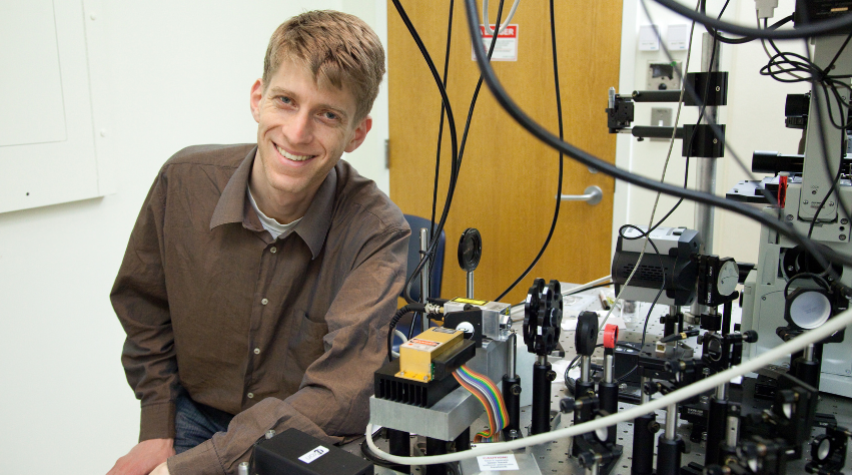
The 4th Optogenetic Technologies and Applications Conference, organized by the Society for Biological Engineering (SBE), will showcase advances in optogenetics and bring together different branches of the optogenetic community. The conference will include approaches in neuronal and non-neuronal optogenetics as well as in materials science and unicellular organisms.
We recently spoke with Adam Cohen, Professor in the departments of Chemistry and Chemical Biology and Physics at Harvard University, and a keynote speaker at this year’s conference. Dr. Cohen shares with us the benefits of optogenetics, new discoveries in the field, and what he predicts for the future of optogenetics.
What inspired you to do research in this field?
I am fascinated by the relation between biophysics and information-processing. How can collections of ion channels, transporters, pumps, and assorted other proteins work together so that we can tie our shoes in the morning? To get at these questions, we need to be able to watch bioelectrical signals flowing in neural circuits. My lab stumbled onto opsin-based voltage indicators almost by chance, but then we realized that these tools could let us watch the brain in action.
How do you envision this field solving some of the challenges in engineering and society?
The ability to watch bioelectrical signals in cells opens the door to studying this signaling mechanism in health and disease. We can compare the behavior of neurons derived from healthy people with neurons that contain disease-causing mutations. We can also study bioelectrical signaling in other domains of life: in other parts of the body, and in other species, such as bacteria and plants. We find surprising bioelectric phenomena almost everywhere we look.
Are there any new developments, technologies, or applications of technologies in this field that you are particularly excited about?
I am particularly excited about the most recent far-red voltage indicators, and their combination with targeted optogenetic stimulation. It will soon be possible to introduce bioelectrical signals into any part of the brain to watch the resulting reverberations. These data-sets will then raise substantial questions of data analysis and interpretation.
What are you hoping the audience takes away from this conference?
There are great opportunities for new technologies at the interface of molecular tools, instrumentation, and software. We are approaching the point where we can begin to dissect the function of the brain in action.
The 4th Optogenetic Technologies and Applications Conference will be held in Boston, MA, September 10–12, 2024. Learn more and register today.
Funding is available to help sponsor some registrations and travel costs. Students/post-docs and early-career professionals are encouraged to apply here. This grant is made possible by the AIChE® Foundation and other generous supporting organizations.

Adam Cohen
Adam Cohen is a professor in the departments of Chemistry and Chemical Biology and Physics at Harvard. His research focuses on developing tools to study molecules, cells, and organisms, with a focus on imaging membrane potential and other physical forces. Read more


